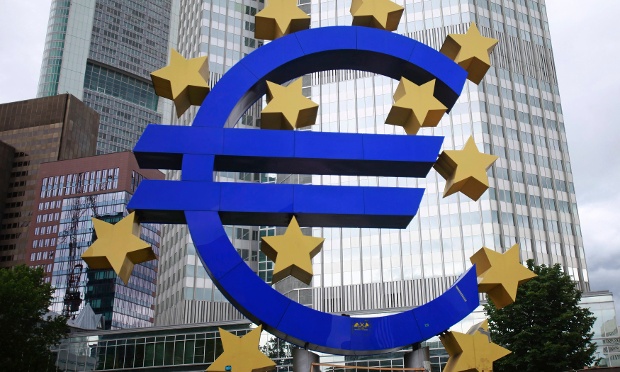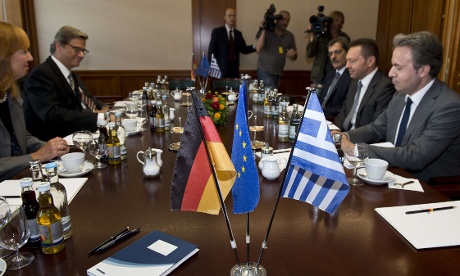Despite the important moves by the ECB to support Spanish and Italian bonds, Euro area finance ministers continued to squabble over details of a deeper fiscal union and oversight of banks:
"
Squabbling among European governments over the next steps needed to overcome the sovereign debt crisis raised the specter of more turmoil, puncturing a rally that had sent Spanish 10-year bond yields to their lowest in five months."
http://www.bloomberg.com/news/2012-09-16/european-squabbling-on-currency-crisis-solution-may-test-rally.html

EU leaders continued their one-on-one meetings with Spanish Prime Minister Rajoy meeting with his counterpart Mario Monti in Italy, while Francois Hollande and Angela Merkel met during a commemoration ceremony of a reconciliation speech by General DeGaulle in 1962 in Ludwigsberg Germany.
http://www.bbc.co.uk/news/world-europe-19684532

It's not clear that France and Germany see eye to eye on Euro crisis issues, and agreement is still needed on many details to move forward with the ECB's plans.
http://www.businessweek.com/news/2012-09-23/euro-leaders-seek-end-to-stalemate-as-discord-mounts-on-crisis
But perhaps one of the more disturbing pieces of news out of Europe this weekend was the impact of the Euro crisis on Irish Pubs "Irish bar sales have dropped by about 25% over the past decade — 5%
last year alone — and the number of pubs has fallen from more than
10,000 to 8,300. Ten years ago, 80% of alcohol sales occurred in bars;
now fewer than half do. The fastest-growing beverage is wine, once
ordered in a pub only by the brave or unwitting." Having spent time in Irish pubs 7 (!) years ago, I hope that they will rebound...
http://www.freep.com/usatoday/article/57832862

![[image]](http://si.wsj.net/public/resources/images/WO-AL232_GREECE_NS_20120927183016.jpg)






